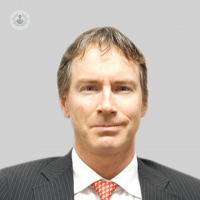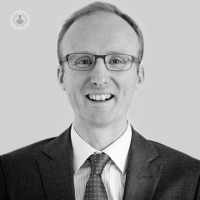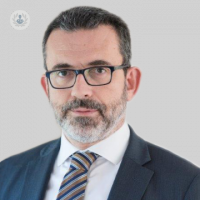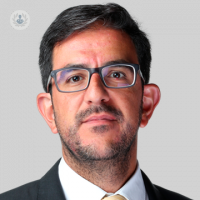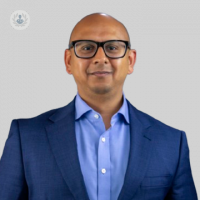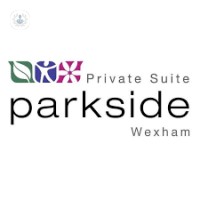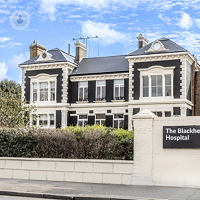What is cardiomyopathy?
Cardiomyopathy is disease of the heart muscle. It is something of an umbrella term for a number of conditions that affect this tissue. Cardiomyopathies may cause the walls of the heart chambers to become stiff, thickened, or stretched, which can put strain on the heart as it must work harder to pump blood around the body.

Types of cardiomyopathy
Types of cardiomyopathy include:
- Dilated cardiomyopathy (DCM)
- Hypertrophic cardiomyopathy (HCM)
- Arrhythmogenic right ventricular cardiomyopathy (ARVC)
- Restrictive cardiomyopathy (RCM)
- Left ventricular noncompaction (LVNC)
- Peripartum cardiomyopathy (PPCM)
- Takotsubo cardiomyopathy (broken heart syndrome)
Prognosis of cardiomyopathy
Most forms of cardiomyopathy have no cure. Cases of mild cardiomyopathy can usually be managed with lifestyle changes and monitoring the condition. More severe cases can lead to life-threatening complications without treatment to control the symptoms.
Takotsubo cardiomyopathy, on the other hand, is temporary and reversible if caught and treated in time. This can come on suddenly like a heart attack and must be dealt with immediately by the emergency services. It is unlikely to happen again to the same individual.
Symptoms of cardiomyopathy
Different cardiomyopathies affect the heart in different ways.
Dilated cardiomyopathy can cause heart valve problems, an irregular heartbeat, blood clots or heart failure, with associated symptoms of fatigue, shortness of breath, and swelling around the ankles.
Hypertrophic cardiomyopathy, on the other hand, can lead to atrial fibrillation and mitral regurgitation, which can cause symptoms of dizziness, chest pain, shortness of breath and temporary loss of consciousness.
Broken heart syndrome can feel a lot like a heart attack, with symptoms of chest pain and difficulty breathing.
Medical tests to diagnose cardiomyopathy
Tests, such as echocardiograms and electrocardiograms (ECG), can help to diagnose cardiomyopathy. Inherited forms may also be diagnosed by genetic testing.
What are the causes of cardiomyopathy?
Dilated cardiomyopathy, hypertrophic cardiomyopathy, and arrhythmogenic right ventricular cardiomyopathy are most commonly inherited, often running in families. Restrictive cardiomyopathy can sometimes be inherited, but in many cases the cause is unknown.
Takotsubo cardiomyopathy is brought on by physical and/or emotional stress, with a sudden surge of adrenaline or hormones temporarily weakening the heart muscle.
Treatments for cardiomyopathy
Treatment for cardiomyopathy generally involves managing the symptoms and preventing complications.
Lifestyle measures may include:
- Healthy diet
- Quit/avoid smoking
- Maintain a healthy weight
- Avoid/reduce alcohol intake
- Reduce stress
- Get enough sleep
The following medications may be recommended by the doctor:
- Blood pressure medication
- Beta-blockers for an irregular heartbeat or heart failure
- Diuretics – if the cardiomyopathy has caused swelling, these help remove fluid from the body
- Anticoagulants, e.g. warfarin – these help prevent blood clots
- Medication for heart failure
Some patients may require hospital procedures, including heart surgery or the fitting of a pacemaker.
In particularly severe cases, a last resort could be a heart transplant.
Which type of specialist treats cardiomyopathy?
Cardiologists treat the various types of cardiomyopathy.
11-06-2019 07-26-2023Cardiomyopathy
Professor Mark Gallagher - Cardiology
Created on: 11-06-2019
Updated on: 07-26-2023
Edited by: Carlota Pano
What is cardiomyopathy?
Cardiomyopathy is disease of the heart muscle. It is something of an umbrella term for a number of conditions that affect this tissue. Cardiomyopathies may cause the walls of the heart chambers to become stiff, thickened, or stretched, which can put strain on the heart as it must work harder to pump blood around the body.

Types of cardiomyopathy
Types of cardiomyopathy include:
- Dilated cardiomyopathy (DCM)
- Hypertrophic cardiomyopathy (HCM)
- Arrhythmogenic right ventricular cardiomyopathy (ARVC)
- Restrictive cardiomyopathy (RCM)
- Left ventricular noncompaction (LVNC)
- Peripartum cardiomyopathy (PPCM)
- Takotsubo cardiomyopathy (broken heart syndrome)
Prognosis of cardiomyopathy
Most forms of cardiomyopathy have no cure. Cases of mild cardiomyopathy can usually be managed with lifestyle changes and monitoring the condition. More severe cases can lead to life-threatening complications without treatment to control the symptoms.
Takotsubo cardiomyopathy, on the other hand, is temporary and reversible if caught and treated in time. This can come on suddenly like a heart attack and must be dealt with immediately by the emergency services. It is unlikely to happen again to the same individual.
Symptoms of cardiomyopathy
Different cardiomyopathies affect the heart in different ways.
Dilated cardiomyopathy can cause heart valve problems, an irregular heartbeat, blood clots or heart failure, with associated symptoms of fatigue, shortness of breath, and swelling around the ankles.
Hypertrophic cardiomyopathy, on the other hand, can lead to atrial fibrillation and mitral regurgitation, which can cause symptoms of dizziness, chest pain, shortness of breath and temporary loss of consciousness.
Broken heart syndrome can feel a lot like a heart attack, with symptoms of chest pain and difficulty breathing.
Medical tests to diagnose cardiomyopathy
Tests, such as echocardiograms and electrocardiograms (ECG), can help to diagnose cardiomyopathy. Inherited forms may also be diagnosed by genetic testing.
What are the causes of cardiomyopathy?
Dilated cardiomyopathy, hypertrophic cardiomyopathy, and arrhythmogenic right ventricular cardiomyopathy are most commonly inherited, often running in families. Restrictive cardiomyopathy can sometimes be inherited, but in many cases the cause is unknown.
Takotsubo cardiomyopathy is brought on by physical and/or emotional stress, with a sudden surge of adrenaline or hormones temporarily weakening the heart muscle.
Treatments for cardiomyopathy
Treatment for cardiomyopathy generally involves managing the symptoms and preventing complications.
Lifestyle measures may include:
- Healthy diet
- Quit/avoid smoking
- Maintain a healthy weight
- Avoid/reduce alcohol intake
- Reduce stress
- Get enough sleep
The following medications may be recommended by the doctor:
- Blood pressure medication
- Beta-blockers for an irregular heartbeat or heart failure
- Diuretics – if the cardiomyopathy has caused swelling, these help remove fluid from the body
- Anticoagulants, e.g. warfarin – these help prevent blood clots
- Medication for heart failure
Some patients may require hospital procedures, including heart surgery or the fitting of a pacemaker.
In particularly severe cases, a last resort could be a heart transplant.
Which type of specialist treats cardiomyopathy?
Cardiologists treat the various types of cardiomyopathy.


An expert overview of left ventricular outflow tract obstruction (LVOTO)
By Dr Antonis Pantazis
2024-12-21
Left ventricular outflow tract obstruction (LVOTO) is a heart problem which takes place in the main ventricle of the heart, which can cause an array of symptoms. Renowned consultant cardiologist Dr Antonis Pantazis explains everything you need to know about the condition. See more


Conditions that lead to congestive heart failure
By Dr Rajan Sharma
2024-12-20
Heart failure often develops from other common conditions, which can damage or weaken the heart. We take a look at the conditions, and how they can lead to heart failure. See more
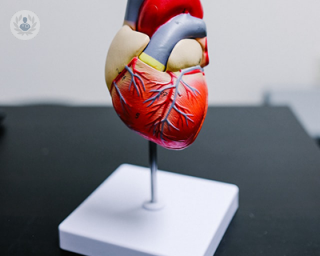

Expert insight: Can you lead a normal life with cardiomyopathy?
By Dr Antonis Pantazis
2024-12-20
We invited leading consultant cardiologist Dr Antonis Pantazis, to shed light on the symptoms of cardiomyopathy, a condition affecting the muscles of the heart. The revered specialist also expertly explains how cardiomyopathy is diagnosed and when treatment is required. See more


Echocardiogram for children: A guide for parents on what to expect
By Dr Abbas Khushnood
2024-12-20
Leading consultant paediatric cardiologist and transplant physician Dr Abbas Khushnood gives an expert guide on what to expect from an echocardiogram for children in this informative article. See more
Experts in Cardiomyopathy
-
Dr Nick Linton
CardiologyExpert in:
- Atrial Fibrillation
- Arrhythmia
- Hypertension (high blood pressure)
- Cardiomyopathy
- Heart attack
- Heart murmur
-
Dr Sabiha Gati
CardiologyExpert in:
- Sports cardiology
- Cardiomyopathy
- Cardiac screening
- Cardiac MRI
- Echocardiogram
- Stress test
-
Dr Antonis Pantazis
CardiologyExpert in:
- Cardiomyopathy
- Ventricular tachycardia
- Echocardiogram
- Genetic testing
- Heart failure
- Pericarditis
-
Professor Michael Papadakis
CardiologyExpert in:
- Sports cardiology
- Cardiac screening
- Inherited cardiac conditions
- Cardiomyopathy
- Heart check up
- Preventive cardiology
-
Dr Kaushik Guha
CardiologyExpert in:
- Heart failure
- Cardiomyopathy
- Atrial Fibrillation
- Chest pain
- Implantable cardioverter defibrillator (ICD)
- Pacemaker
- See all

The Parkside Suite Wexham
The Parkside Suite Wexham
Wexham Park Hospital, SL2 4HL, Berkshire
No existe teléfono en el centro.
By using the telephone number provided by TOP DOCTORS, you automatically agree to let us use your phone number for statistical and commercial purposes. For further information, read our Privacy Policy
Top Doctors

The Blackheath Hospital - part of Circle Health Group
The Blackheath Hospital - part of Circle Health Group
40-42 Lee Terrace, Blackheath, London SE3 9UD
No existe teléfono en el centro.
By using the telephone number provided by TOP DOCTORS, you automatically agree to let us use your phone number for statistical and commercial purposes. For further information, read our Privacy Policy
Top Doctors

Goring Hall Hospital - part of Circle Health Group
Goring Hall Hospital - part of Circle Health Group
Bodiam Ave, Goring-by-Sea, Worthing BN12 5AT
No existe teléfono en el centro.
By using the telephone number provided by TOP DOCTORS, you automatically agree to let us use your phone number for statistical and commercial purposes. For further information, read our Privacy Policy
Top Doctors
-
The Parkside Suite Wexham
Wexham Park Hospital, SL2 4HL, Berkshire, WexhamExpert in:
- Colorectal surgery
- General Surgery
- Breast augmentation
- Dermatology
- Obstetrics and Gynaecology
- Medical Oncology
-
The Blackheath Hospital - part of Circle Health Group
40-42 Lee Terrace, Blackheath, London SE3 9UD, East LondonExpert in:
- Vascular Surgery
- Cardiology
- Bariatric Surgery
- Colorectal surgery
- Endocrine Surgery
- General Surgery
-
Goring Hall Hospital - part of Circle Health Group
Bodiam Ave, Goring-by-Sea, Worthing BN12 5AT, Goring-by-SeaExpert in:
- Hip
- Cataracts
- Gallbladder surgery
- General Surgery
- Orthopaedic surgery
- Hernia
- See all
- Most viewed diseases, medical tests, and treatments
- Electrophysiology study
- Genetic testing
- Anxiety
- Long Covid
- Medicolegal
- Robotic surgery
- Hypertension (high blood pressure)
- MRI
- Fatty liver
- Cholesterol
